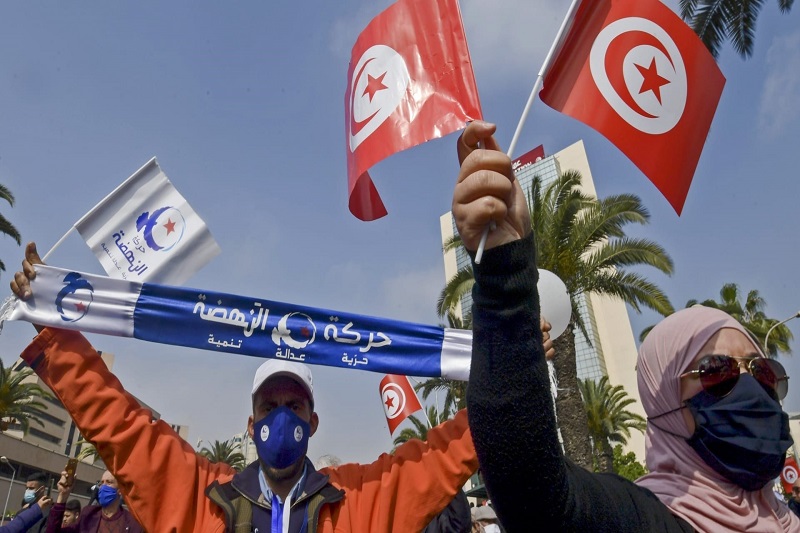The Ennahda Movement, whose foundations were laid in Tunisia, a country in North Africa, at the beginning of the 1970s by Rached Ghannouchi and his friends, has continued its existence as an Islamic party for many years. However, the movement gradually shifted its association with terrorism and assassinations.
Reportedly, the Ennahda Movement was inspired by the Egyptian Muslim Brotherhood. Ennahda reached the height of its political power in the immediate aftermath of the Tunisian revolution in 2011. According to media reports, the head of the Movement, Ghannouchi, has previously had ties to Islamist and violent extremist groups in Tunisia and around the world.
The Ennahda Movement ties with terrorism
According to the Washington Institute for Near East Policy, leaders of the al-Qaeda-affiliated Ansar al-Sharia group in Tunisia (AST) attended meetings at Ghannouchi’s home in 2011. The leaders reportedly advised the Ennahda party to encourage AST youth to infiltrate Tunisia’s national army and National Guard.
Once Ghannouchi also claimed to have met with representatives of the global Islamist movement Hizb ut-Tahrir, a terror organisation banned from operating in at least 13 countries across the world.
Related Posts
The Ennahda Movement is responsible for the assassinations of political leaders
In 2018, lawyers and politicians claimed that the Ennahda Movement was behind the 2013 assassinations of Chokri Belaid and Mohamed Brahmi, two progressive political leaders of the leftist Popular Front electoral alliance. Later, individuals affiliated with a Daesh affiliate confessed to killing them. The assassination triggered a political crisis in the country.
Belaid was shot dead in front of his house in 2013. Soon after his death, Belaid’s widow Basma Belaid said that she did not doubt that Ennahda was responsible for her husband’s murder. She reportedly said, “I accuse Ennahda and the party leader Ghannouchi of assassinating my husband.”
In 2018, Beji Caid Essebsi, former president of Tunisia, also accused Ennahda of issuing personal threats against him. The party also faced allegations that it maintained a secret security service for political assassinations in the country.
Recently, the Tunisian judiciary charged the head of the Ennahda movement, Rached Ghannouchi, along with 32 other figures, with terrorism. The most prominent charges were related to membership in a terrorist organisation and money laundering.
Money laundering case against Ennahda
The Chokri Belaid and Mohamed Brahmi Defence Committee also accused Ghannouchi and his son Moaz of money laundering. The committee revealed information on assassination cases and the suspected involvement of the Ennahda Islamist Movement. Later on, cases were also filed against them.
A few months ago, the Free Constitutional Party called for classifying Ennahda as a terrorist organisation. The party accused the Ennahda of political assassinations, terrorism, administrative abuse and foreign interference in Tunisia.

